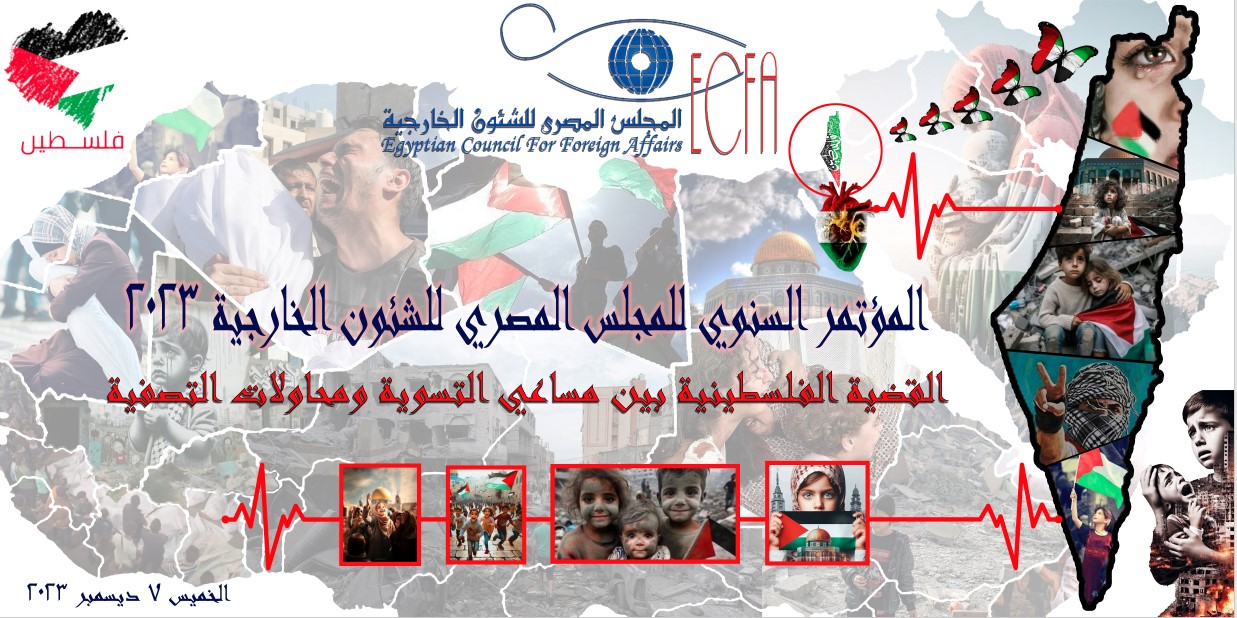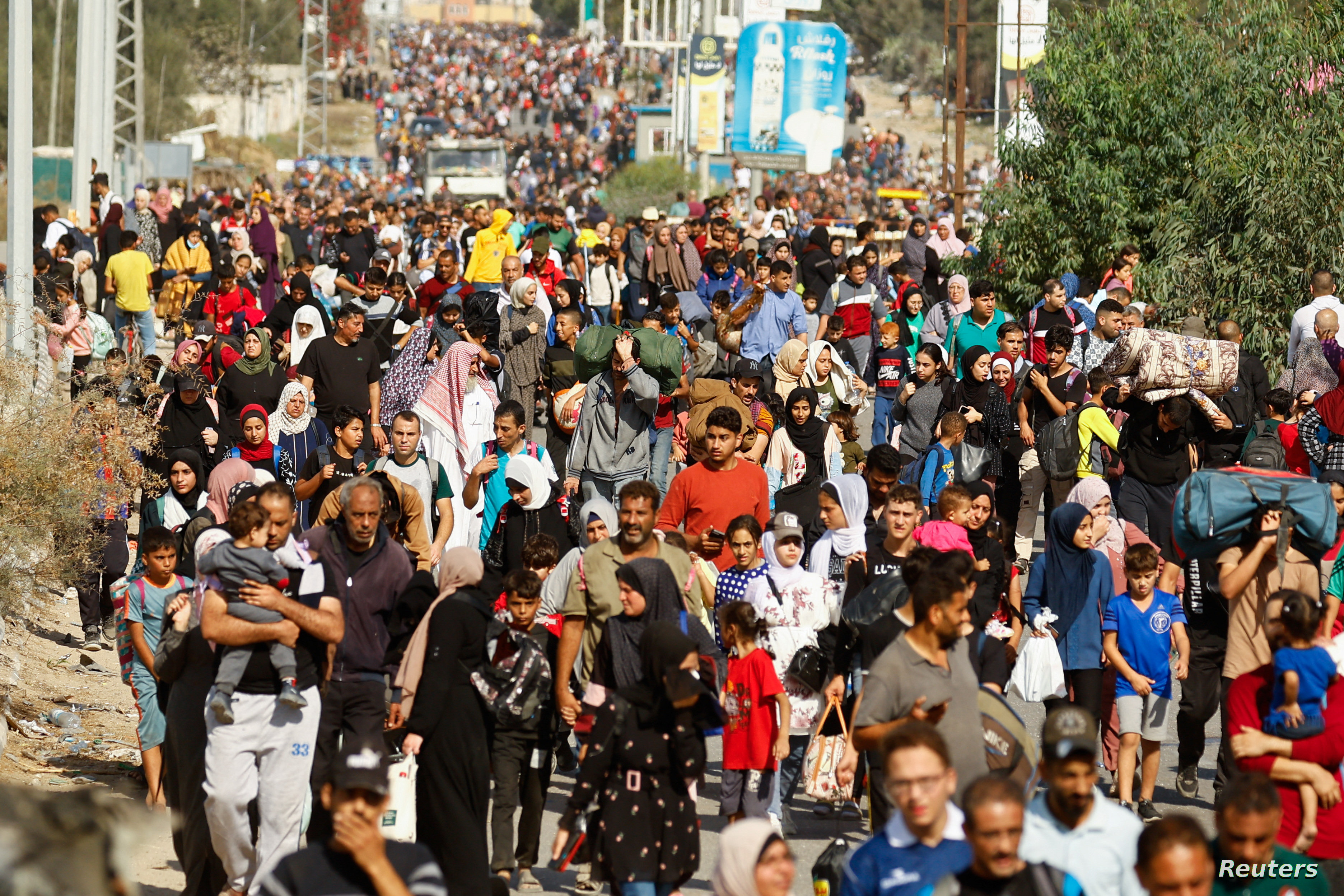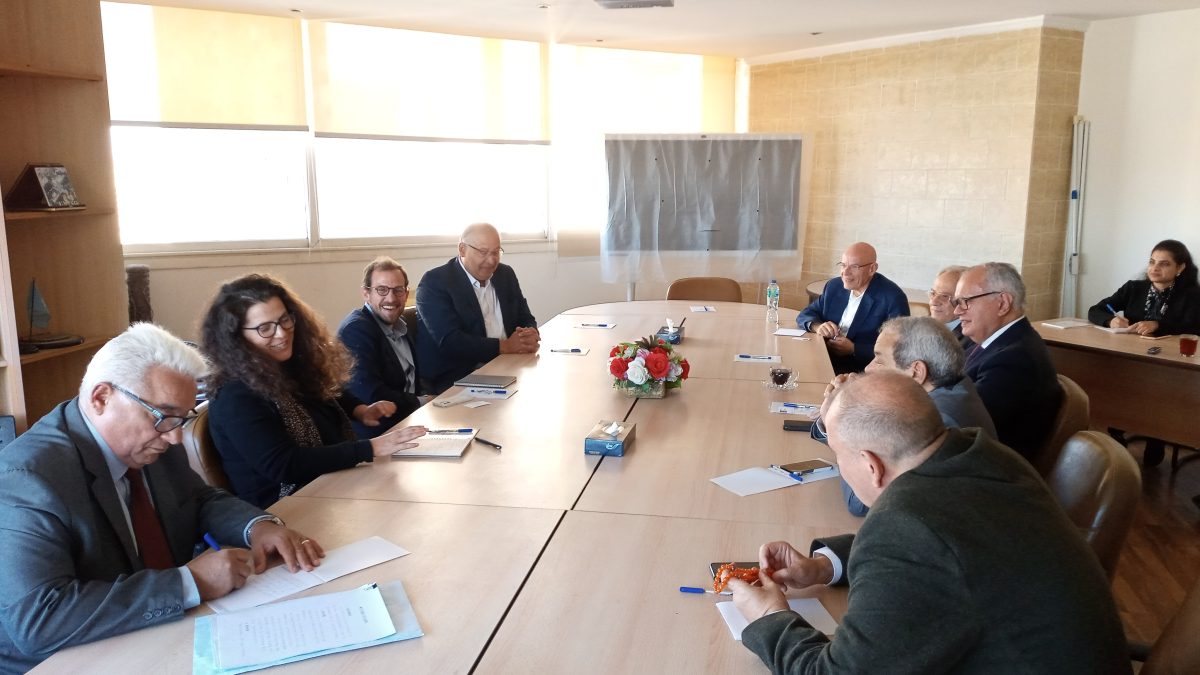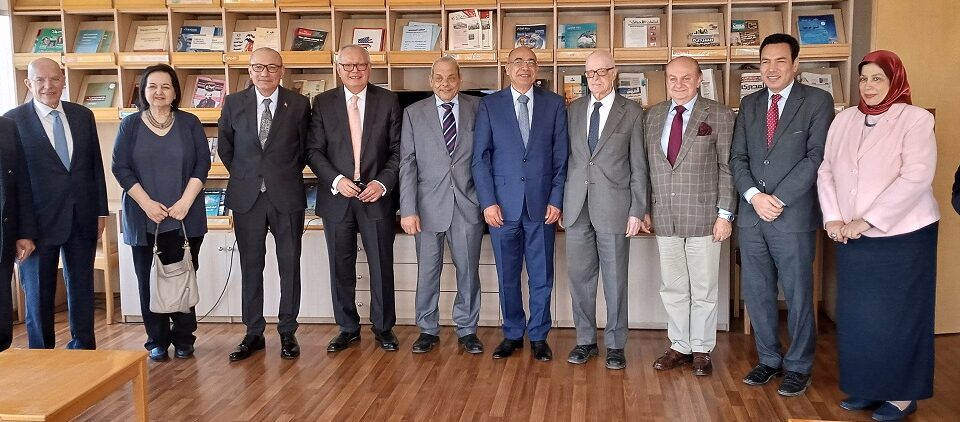ECFA’s 2023 Annual Conference “The Palestinian Cause between Settlement Efforts and liquidation attempts”
December 7, 2023Statement condemning the displacement of Palestinians from the Gaza Strip
January 4, 2024
As part of the visit held to Egypt by a delegation from the International Crisis Group Foundation during the period from 20 to 23 November 2023, to hold meetings with officials of the Ministry of Foreign Affairs concerned with files of common interest in the context of the Foundation’s upcoming publications, and based on the Ministry of Foreign Affairs request for ECFA to hold a consultative session with the visting delegation, being one of the active Egyptian think tanks, ECFA hosted on November 22, 2023, Mr. Alan Boswel, Director of the Horn of Africa Program, and Ms. Claudia Gazzini, Director of the North Africa Program. The meeting was opened by Ambassador Mohamed El-Oraby, ECFA Chairman, and attended by ambassadors: Marwan Badr, Ezzat Saad, Ali El-Hefny, Ayman Mousharrafa, Mohamed Al-Noqali, Mohamed Anis Salem, Mohamed Hegazy, and businessman Mohamed Kassem.
The visiting delegation provided a detailed introduction of the International Crisis Group, its structure, and its working mechanisms, while Ambassador Ezzat Saad, ECFA Director, presented a comprehensive overview of the Council, its areas of interest, its committees, how it works, and its partners. The meeting also reviewed the situation in the occupied Palestinian territories, Sudan, Libya, and the Horn of Africa and Ethiopian policies there, in addition to the Ethiopian dam file and its harmful impact on Egyptian national security, unless a binding legal agreement is reached regarding the management and operation of the dam. In this regard, it was pointed out that the level of division in regional and international positions regarding the existing crises in the region makes them protracted and exacerbate into more overlaps and discrepancies in interests, which makes the possibility of reaching a solution extremely difficult.
Accordingly, the Egyptian side indicated that the ongoing events in the occupied Palestinian territories, especially in Gaza, will undoubtedly contribute to altering the security situation in the region, while emphasizing that the normalization agreements between Israel and Arab states will not lead in any way to resolving the crisis, since they have not addressed the essence of the Palestinian cause. He also pointed out that the instability of the Horn of Africa region is due to Ethiopia’s practices and its adoption of expansionist policies there, at the expense of neighboring countries. This is in addition to the prevailing belief that the last round of negotiations between the Egyptian and Ethiopian sides, in respect of the Ethiopian dam, will not result in anything positive, in light of Ethiopia’s keenness to negotiate specific points, and completely disavow any binding agreement that restricts its freedom in the present or in the future, in association with the Blue Nile waters, which it sees as a cross-border river that must be exploited within its borders to achieve its alleged development goals.
In this context, the Egyptian side refuted Ethiopia’s allegations, stressing that Ethiopia’s goals behind the dam construction are purely political, through which it seeks to influence Egypt and its regional weight. It was also emphasized that the Nile River must be dealt with as an integrated environmental system, which must have integrated management among the upstream and downstream countries, especially since this facilitates the coordination process among the Basin countries regarding the regulation of water through the dams existing on it, and paves the way to talk about cooperation in the agricultural, electrical, and other fields, for the benefit of the concerned countries.
On the other hand, the Egyptian side warned of the dangers of escalation in both Sudan and Libya, calling for the necessity of striving to strengthen efforts aimed at reaching a solution, stressing that the current events in both states affect the security of the entire region, in addition to being in line with the noticeable developments in the Sahel and Sahara region which is witnessing an escalation in the field of terrorism, security, displacement, and illegal immigration, which in turn affects Europe and its security in one way or another. In this context, the Egyptian side proposed establishing an early warning mechanism, in coordination with the relevant authorities in the countries of the region, in order to prevent the outbreak of conflicts or at least mitigate their gravity.






